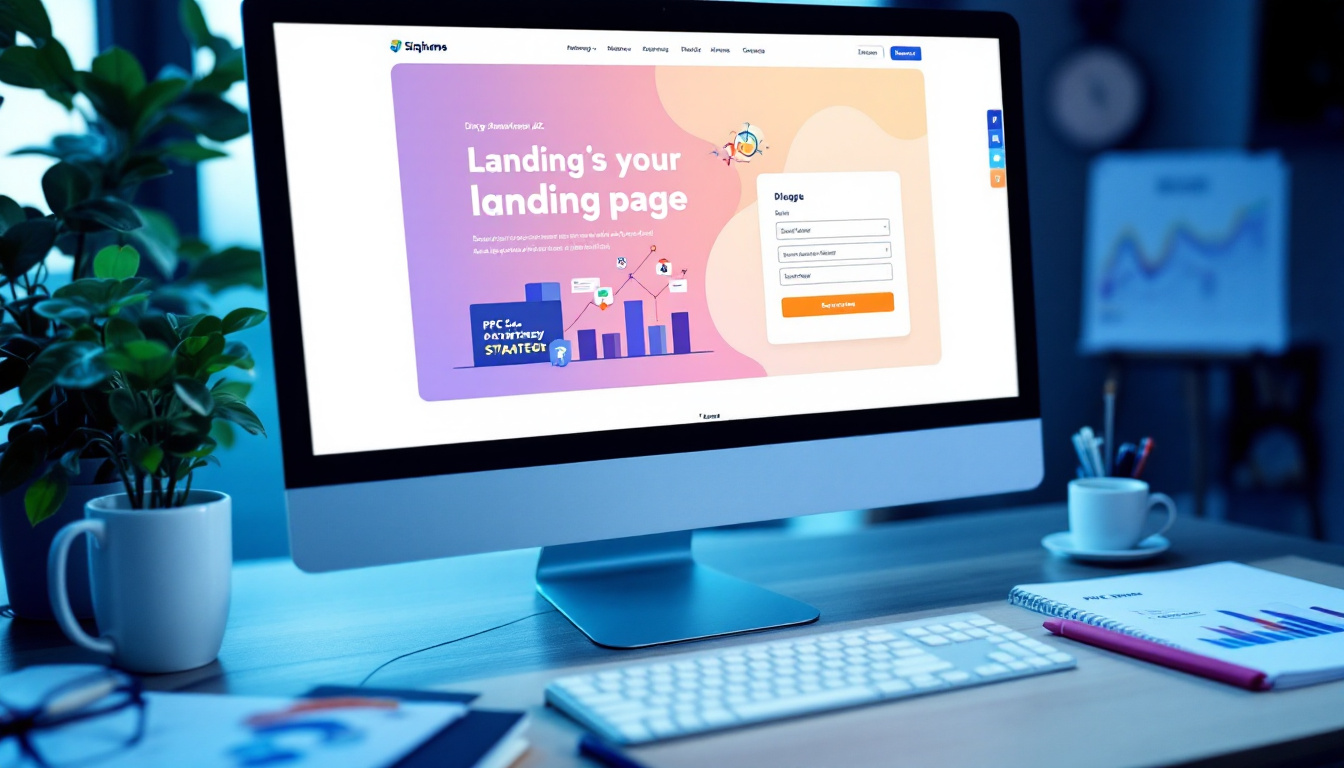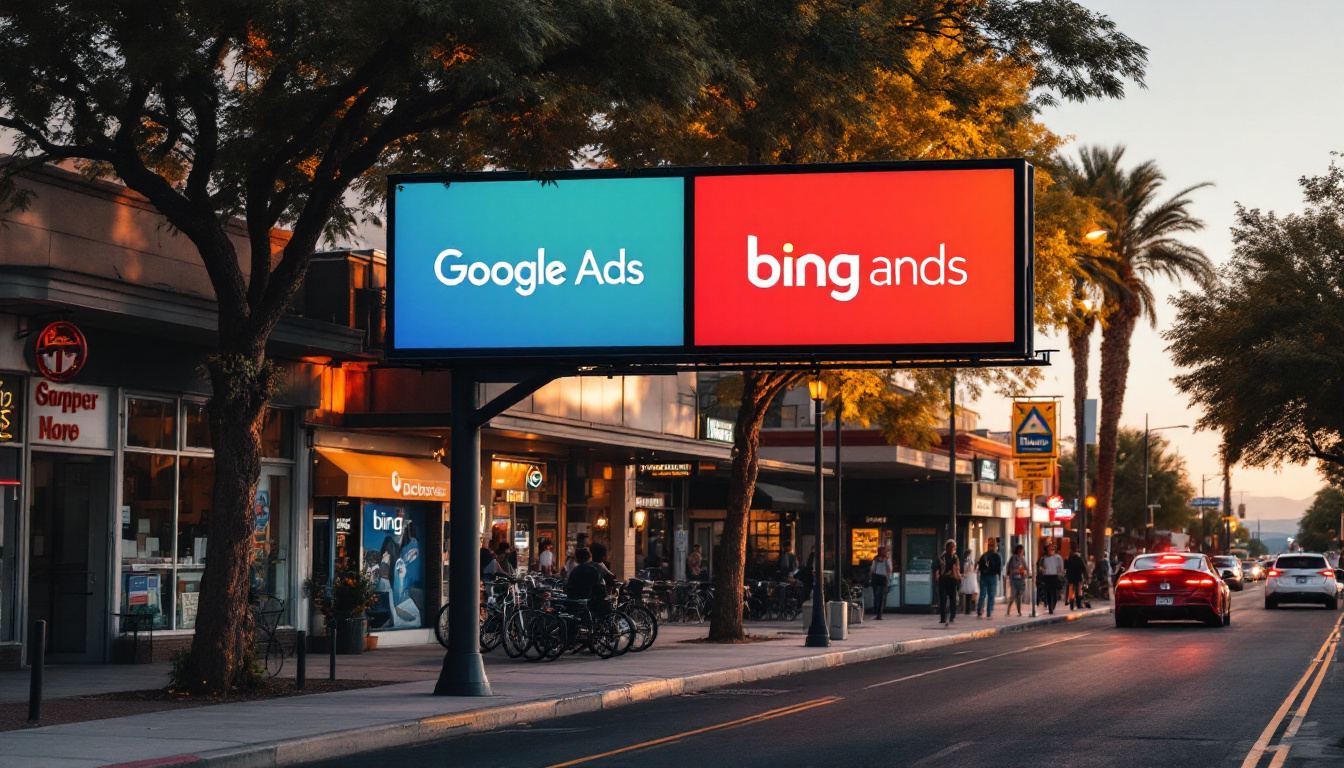10 Things Every Mesa, AZ Business Should Know About PPC

Pay-per-click (PPC) advertising has become an essential tool for businesses in Mesa, Arizona, looking to reach their target audience effectively. As the digital landscape evolves, understanding the nuances of PPC can make a significant difference in campaign success. In this article, we will explore ten critical aspects of PPC marketing that every Mesa business should know.
Why PPC is essential for Mesa, AZ businesses
PPC advertising offers a unique opportunity for local businesses in Mesa to gain visibility and drive targeted traffic. With the increasing competition in the digital space, relying solely on organic reach might not suffice. Here are some important reasons why PPC is essential:

- Immediate Visibility: Unlike organic SEO strategies, which can take time to yield results, PPC ads can provide instant exposure. As soon as a campaign is launched, the ads can begin to appear in search results, making it easier for potential customers to find your business.
- Targeted Reach: PPC allows businesses to target specific demographics, interests, and behaviors, ensuring that ads reach the most relevant audiences. This precision is particularly valuable for local businesses looking to attract customers within a specific geographic area.
- Measurable Results: One of the most significant advantages of PPC is the ability to track performance in real-time. Businesses can continuously monitor their ad campaigns, optimizing them based on valuable data such as click-through rates and conversion rates.
In addition to these benefits, PPC advertising can significantly enhance brand awareness. Even if users do not click on the ads immediately, the repeated exposure can create familiarity and trust with your brand. This is particularly important in a community like Mesa, where local businesses often rely on word-of-mouth and reputation. By consistently appearing in search results, your business can become a recognized name among potential customers, making it more likely that they will choose you when they are ready to make a purchase.
Furthermore, PPC campaigns can be tailored to align with seasonal trends and local events, allowing businesses to capitalize on specific opportunities. For instance, a restaurant in Mesa might run a targeted PPC campaign during the annual Mesa Music Festival, promoting special offers or events that coincide with the influx of visitors. This strategic approach not only maximizes the effectiveness of ad spend but also engages potential customers in a timely manner, increasing the likelihood of conversions.
Common misconceptions about PPC
Despite its many benefits, PPC advertising is often surrounded by misconceptions that can deter businesses from pursuing this marketing avenue. Here are a few myths worth addressing:
- PPC is Too Expensive: Many businesses believe that PPC requires a substantial budget. However, campaigns can be scaled based on individual budgets. Starting small and adjusting based on performance is a common practice.
- PPC is Only for Large Brands: While larger companies often utilize PPC, it is equally beneficial for small and medium-sized businesses. Local targeting features allow small businesses to compete effectively, even against established brands.
- PPC Doesn't Require Ongoing Management: Some businesses mistakenly think that setting up a PPC campaign is a one-time task. Effective PPC requires continuous monitoring and adjustments to improve performance and ROI.
Addressing these misconceptions can empower more Mesa businesses to consider PPC as a legitimate and effective marketing strategy. Additionally, many companies overlook the potential of leveraging data analytics in their PPC campaigns. By analyzing user behavior and conversion rates, businesses can refine their targeting strategies and enhance their ad copy, ensuring that they reach the right audience at the right time. This data-driven approach not only maximizes the effectiveness of the ad spend but also provides valuable insights into customer preferences and trends.
Furthermore, another common myth is that PPC advertising is solely about driving immediate sales. While it is true that PPC can generate quick returns, it also plays a crucial role in brand awareness and long-term customer engagement. Businesses can utilize remarketing strategies to re-engage users who have previously interacted with their site, nurturing these leads over time. This dual benefit of immediate and sustained engagement makes PPC a versatile tool in the digital marketing arsenal, suitable for various business objectives.
How to allocate your PPC budget effectively
Budgeting for a PPC campaign can be daunting for Mesa businesses, especially for those new to digital marketing. However, with a strategic approach, you can maximize the effectiveness of your budget:
- Define Your Goals: Establish what you want to achieve with your PPC campaign, such as increasing sales, website traffic, or brand awareness. Clear goals will guide your budget allocation.
- Research Keywords: Invest time in keyword research to identify which terms your audience is searching for. Select high-intent keywords that align with your goals, as they can lead to better conversions.
- Utilize Ad Extensions: Incorporating ad extensions can enhance your ads' visibility without significantly increasing costs. These additional links and information help improve click-through rates.
- Monitor and Adjust: Regularly analyze your campaign's performance. Reallocate your budget towards keywords and ads driving the most success while reducing spending on ineffective areas.
By following these steps, businesses in Mesa can strategically allocate their PPC budgets for optimal results and a better return on investment.
Additionally, consider the importance of audience segmentation. Tailoring your ads to specific demographics, interests, and behaviors can significantly enhance engagement and conversion rates. For instance, if your business caters to a younger audience, utilizing platforms like Instagram or TikTok for your PPC campaigns may yield better results than traditional channels. Understanding your audience allows you to create more personalized ad experiences, which can lead to increased customer loyalty and higher lifetime value.
Furthermore, don't overlook the power of A/B testing. Experimenting with different ad copies, visuals, and calls-to-action can provide valuable insights into what resonates best with your target audience. By continuously testing and refining your approach, you can identify the most effective strategies and allocate your budget accordingly. This iterative process not only optimizes your current campaigns but also equips you with data-driven insights for future marketing efforts.
The role of keywords in PPC success
Keywords are the backbone of a successful PPC campaign. Choosing the right keywords can directly impact your ad visibility and effectiveness. Here are some crucial aspects of keyword strategy:

- Long-Tail Keywords: While broad keywords are tempting due to high search volumes, long-tail keywords often bring in higher-converting traffic. They are specific to user intent and typically face less competition.
- Negative Keywords: Utilize negative keywords to prevent your ads from appearing in irrelevant searches. This tactic can save your budget and improve overall campaign efficiency.
- Keyword Match Types: Familiarize yourself with different keyword match types—broad, phrase, exact, and modified broad. Using a combination allows for a balanced approach that can attract a diverse audience.
Understanding the role of keywords can not only enhance your PPC campaign's reach but also ensure that it drives relevant traffic to your site. Additionally, regular keyword research and analysis are essential to stay ahead of market trends and consumer behavior. Utilizing tools like Google Keyword Planner can help identify new opportunities and refine your existing keyword list. By continuously monitoring performance metrics, you can adjust your strategy in real-time, ensuring that your ads remain relevant and effective.
Moreover, the competitive landscape of PPC advertising necessitates a proactive approach to keyword management. Regularly reviewing your competitors' keyword strategies can reveal gaps in your own approach and inspire new ideas. Engaging in A/B testing with different keywords can provide insights into which terms resonate most with your target audience, ultimately leading to improved click-through rates and conversions. By prioritizing a dynamic keyword strategy, you position your campaign for sustained success in a rapidly evolving digital marketplace.
How PPC fits into your overall marketing strategy
PPC should never exist in isolation; instead, it must be integrated into your broader marketing framework. Here's how to achieve that:
- Complementing SEO Efforts: While SEO focuses on organic reach, combining it with PPC can give you the visibility you need in both areas. Using PPC ads for high-value keywords can complement organic results, increasing your chances of capturing leads.
- Retargeting Campaigns: Utilizing PPC for retargeting can help you reconnect with previous site visitors. This strategy nurtures leads and can significantly boost conversion rates.
- Cross-Channel Marketing: Integrate PPC with other platforms like social media and email marketing for a cohesive approach. Consistent messaging across channels strengthens brand identity and builds customer trust.
By understanding how PPC fits into your overall marketing strategy, Mesa businesses can ensure their digital marketing efforts are aligned and maximally effective.
Moreover, leveraging data analytics is crucial in refining your PPC campaigns. By closely monitoring metrics such as click-through rates, conversion rates, and customer acquisition costs, businesses can identify which ads are performing well and which need adjustments. This data-driven approach allows for real-time optimization, ensuring that marketing budgets are spent efficiently and effectively. Additionally, A/B testing different ad copies and landing pages can reveal insights into customer preferences, further enhancing the chances of successful conversions.
Another vital aspect of integrating PPC into your marketing strategy is audience segmentation. Understanding your target audience's demographics, interests, and online behaviors enables you to tailor your PPC campaigns more precisely. By creating specific ad groups for different segments, you can deliver personalized messages that resonate with each audience, increasing the likelihood of engagement. This level of customization not only improves ad performance but also fosters a deeper connection with potential customers, leading to higher brand loyalty over time.

As a Google Ads expert, I bring proven expertise in optimizing advertising campaigns to maximize ROI.
I specialize in sharing advanced strategies and targeted tips to refine Google Ads campaign management.
Committed to staying ahead of the latest trends and algorithms, I ensure that my clients receive cutting-edge solutions.
My passion for digital marketing and my ability to interpret data for strategic insights enable me to offer high-level consulting that aims to exceed expectations.


















